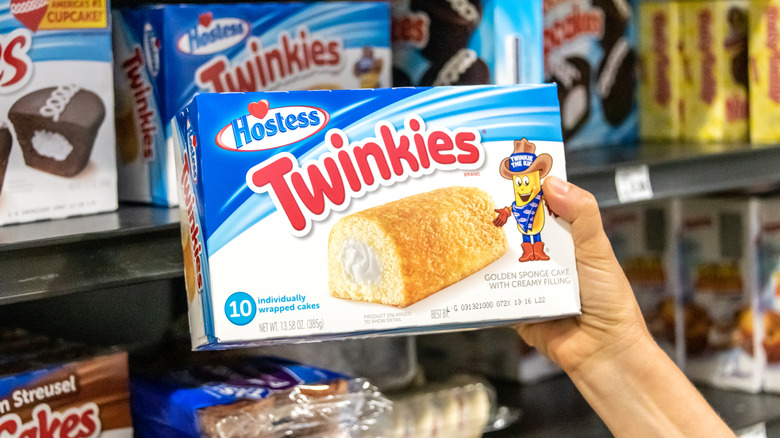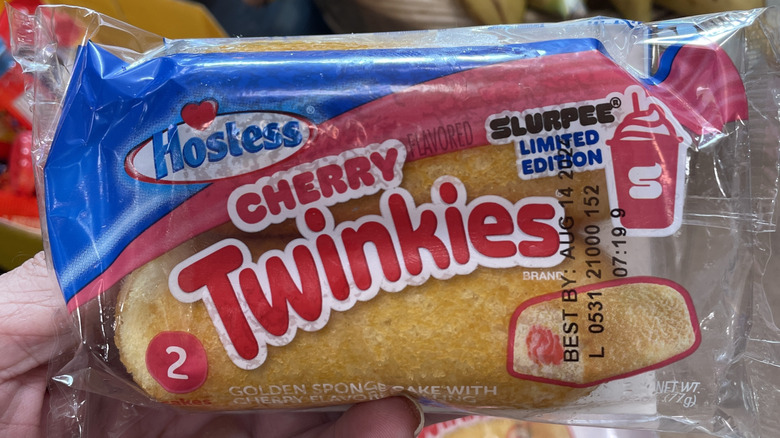
With their extensive list of chemicals and preservatives, Twinkies have earned a reputation as the perfect food to stockpile in an underground bunker in the event of nuclear war. Essentially, these creamy, golden snack cakes are believed to outlast most of us.
However, in 2020, it was revealed that their supposed endless shelf life had been greatly overestimated. In a now-hidden tweet, Twinkies enthusiast Colin Purrington shared his experience when he opened a box of Twinkies he had saved eight years earlier, following Hostess’ bankruptcy and temporary closure (the brand made a comeback two years later). Spoiler alert: “Despite growing up thinking Twinkies would last for years, if not forever, I was mistaken,” Purrington tweeted (via Food Network).
What happens if you eat Twinkies after their best-by date

Recalling his experience of eating an eight-year-old Twinkie, Purrington stated: “The one I bit into was chewy, unsweet, and smelled like rotting ginkgo fruit. I gagged. I have only myself to blame—the box clearly indicated, ‘Best Used by Nov 26th’ (2012).” Additionally, he observed that the cream filling in one Twinkie had turned brown and shriveled. Another Twinkie was “hosting an organism of some sort.” Yet another had become shriveled and brown.
It’s important to mention that Twinkies do not have a true expiration date; instead, they have a best-by date. The best-by date serves as a recommendation for when the product is expected to taste its best. After this date, Twinkies may become stale, lose flavor, or even develop mold if stored improperly.
While consuming a Twinkie past its best-by date is unlikely to cause illness, the quality may deteriorate significantly. In rare instances, especially if exposed to heat or moisture, microbial growth could lead to gastrointestinal issues. When evaluating whether a Twinkie is safe to eat, be alert to unusual smells, odd textures, or cream filling that resembles a science experiment. If anything seems amiss, it’s best to discard it. (Learn about 9 common food storage mistakes that could jeopardize your health.)
Guidelines for enjoying your Twinkies at their freshest best

Contrary to popular belief, Twinkies have a relatively short time frame for optimal freshness. From the date of production, these spongy treats remain at their best for 45 days before their quality begins to decline significantly. If this seems brief, consider that their shelf life was only 26 days before food scientists adjusted the recipe by removing dairy. Nonetheless, Twinkies still contain ingredients like flour, sugar, and eggs, which will eventually spoil despite preservatives (here’s what happens if you eat expired eggs).
To maintain their quality, Hostess recommends storing them at room temperature in a cool, dry place, away from direct sunlight. Your pantry or cupboard is an ideal storage location, but avoid refrigerating them. Some Reddit users suggest freezing Twinkies to extend their shelf life, although this may alter the texture.




